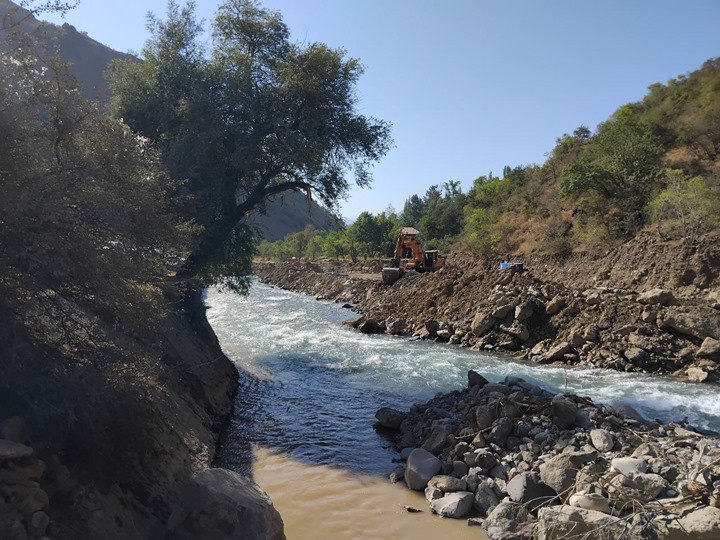UNESCO Concerned About Plans to Develop Western Tien Shan
UNESCO has expressed concern over the plans of Kyrgyzstan, Kazakhstan, and Uzbekistan to develop natural areas of the Western Tien Shan, a World Natural Heritage site. This concern was realized after a visit by UNESCO and the International Union for Conservation of Nature (IUCN), which was a joint mission to these countries to assess the state of the site and the impact of economic activity on it. The public foundation (PF) “Rivers Without Borders” stated this in its report. According to UNESCO, the “Western Tien Shan” is a transboundary site in the Central Asian Tien Shan mountain system, one of the seven largest mountain ranges in the world. The altitude of different sections of the Western Tien Shan varies from 700 to 4503 meters. The site consists of diverse landscapes characterized by a vibrant biodiversity. The Western Tien Shan region is important globally as it is the birthplace of several fruit tree species and is characterized by diverse forest types and unique plant life. In Kyrgyzstan, evidence of the illegal mining of gold within the territory of the World Heritage Site was revealed. In addition, a powerful hydroelectric power plant is planned to be built on the Chatkal River, which may flood protected areas and disrupt the landscape. The construction of the Talas-Chatkal-Tashkent highway along the reservoir will only aggravate the ecological situation. In Kazakhstan, the authorities plan to build a cascade of hydropower plants on the Ugam River, which could destroy the current river ecosystem. Part of the river's flow will be directed through a 210-kilometer pipe for use in other regions of Turkestan region. Experts expressed severe concerns about destroying the natural ecosystem and possible consequences for local flora and fauna. The situation is no less alarming in Uzbekistan: the Chatkal and Ugam rivers have already been dammed, significantly altering their natural landscape. During the visit, the experts said that bulldozers and excavators are already changing the course of the Ugam River, channeling it into artificial channels to construct several small hydropower plants. Rivers Without Borders also oppose these projects, pointing out that they violate international standards and UNESCO requirements. The organization's chief specialist, Evgeny Simonov, stressed that implementing the projects without appropriate environmental assessments and consultations with UNESCO violates the Convention for the Protection of the World Cultural and Natural Heritage. The report on the mission's results is expected to be presented at the next session of the UNESCO World Heritage Committee in 2025 in Sofia, Bulgaria.

